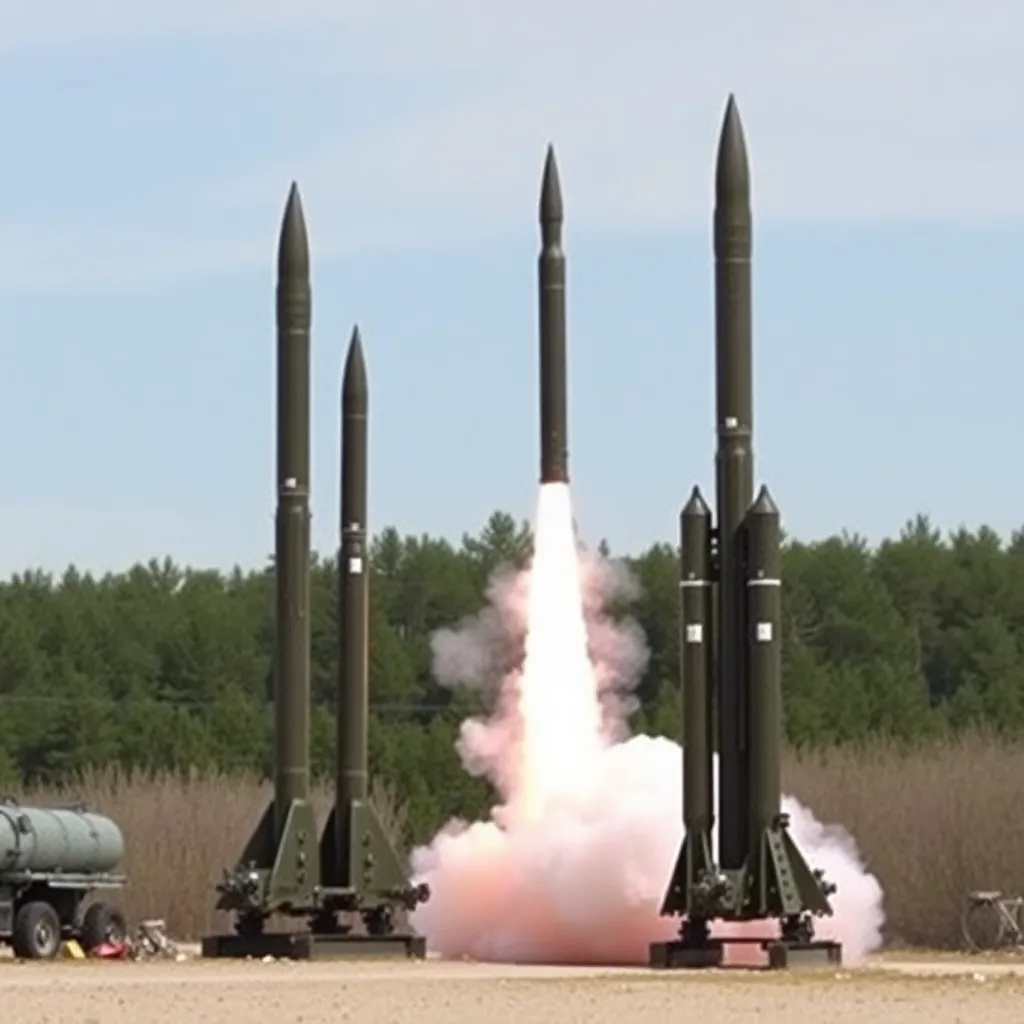
19-Nov-2024 , Updated on 11/19/2024 5:20:00 AM
Does Biden Wants Nuclear War? Provokes Russia By Long-Range Missiles
The Biden administration has shaken the conflict with Russia again by approving supplies of Ukrainian long-range missiles. As Biden goes into the seventh month of his presidency and looks at the map, many must ask whether the US president is deliberately leading the world into dangerous waters to ensure he leaves a mark in terms of foreign policy. Is this a strategically planned measure for preserving democratic values, or is this an unsafe experiment with the option of nuclear war?
Biden’s Gamble: Provoke and Dominate?
Towards the end of Biden’s term in office, his government appears to be obsessed with the imperative of raw power in global politics. That is why delivering long-range missiles to Ukraine is an ambitious decision that is also quite provocative at the same time. The U.S. says these weapons will assist Ukraine in defending itself from Russian aggression, but it seems this will be a slippery slope.
Moscow has consistently said that providing Ukraine with weapons that could strike inside Russia would be regarded as an attack. And this isn’t just rhetoric. Moscow has explained quite unambiguously that any aggressive act may lead to catastrophic results, including preventive air strikes and the use of nuclear weapons.
Russia’s Warning: On the Other Side of the Nuclear Threshold
Russia has not been shy about it either. Despite denying having an aggressive plan, Putin has emphasised severally that any attempt at a direct or indirect attack on Russian territory will trigger an immediate nuclear attack. This discussion should not be forgotten that Russia is a nuclear weapon state and one of the leading nuclear weapon states in the world.
As the U.S. arms Ukraine with sophisticated equipment, it is checking the ability of Russia to respond. Historically, when nuclear power feels threatened, the prospects are not too good, to say the least.
Historical Echoes: The Effects of the Hiroshima and Nagasaki Catastrophe
The threat of nuclear conflict isn’t new. Two mass destruction weapons dropped by the United States on Hiroshima and Nagasaki in 1945 are an awful example of the effects of nuclear weapons. About 200,000 people died, and the entire world got firsthand experience of the effects of the weapons of mass destruction.
But here’s the twist: those bombings occurred at a time when only one nation had nuclear weapons. Today, several countries, including Russia, already have such destructive weapons at their disposal. The stakes are astrophysically higher. One bad move or provocation and the mistrust could turn into a war—a nuclear war—that could bring an end to mankind.
The Global Standoff: Who’s on Which Side?
NATO countries and most European heavyweights have hailed Biden’s support for Ukraine. Other European countries, including the UK, Germany, and France, have invested in Ukraine to help fend off the Russians.
This collective support arrives with some implications. The greater the degree of unison towards Russia manifested by these countries, the more encircled and defensive Russia feels. And an isolated nuclear power is a deadly one.
China has been supportive of Russia’s actions and can be associated with Russia, but has so far not gotten directly involved in the conflict despite its support for Russia’s actions. If the U.S. continues to provoke incidents, then China can also be drawn into the war. This lays the foundation of a more massive global conflict where the world’s most developed countries will be seen engaged in a do-or-die war.
What’s Biden’s Endgame?
Critics said that Biden moved so aimlessly that his actions appeared to be ceremonial or just supplementary. Biden could be trying to position himself in the coming election in 2024 as an effective commander-in-chief who takes on authoritarian governments. But at what cost?
With missile supplies for Ukraine, Biden threatens to get the US and its allies against Russia directly. This is not just the process of assisting Ukraine anymore—it’s more about inciting a nuclear power that has said it is ready for it.
Touch & Go: The Fine Line Between Support & Incitement
Though assisting Ukraine is commendable, there lies a thin line between helping a friend and stirring a hornet’s nest. The Biden administration could be seen as crossing that line by cornering Russia, as the latter experienced in 2014 when Crimea joined Russia.
The decision to supply the Ukrainian side with long-range missiles can become a very unpleasant surprise for the Russian side. Rather than decrease aggressiveness, the latter might increase it. Instead, it might provoke a nuclear conflict that cannot be won by either side of the conflict.
Final Thoughts: A Risk the World Can’t Afford
Biden’s actions raise a critical question: Is he defending democracy that is or merely playing with fire? As things stand now, relations between the two sides remain highly strained; thus, it is now easier than ever before to stumble into a conflict. We saw what happened in the past with nuclear weapons, and we all know the catastrophic results of their use.
The world cannot afford another Hiroshima or Nagasaki. Enough with that; it is time to act rationally. The idea is not to ride roughshod over the other party but to engage in diplomacy, at least before the world finds itself in a situation that will take ages to heal.

Student
hey there! i am a student currently pursuing my bachelors with a keen interest in writing., I am fueled by a deep love for storytelling and a flair for creating captivating narratives. Armed with a passion for language and a keen eye for detail, I strive to craft compelling copy that leaves a lasting impact.
Join Our Newsletter
Subscribe to our newsletter to receive emails about new views posts, releases and updates.
Copyright 2010 - 2026 MindStick Software Pvt. Ltd. All Rights Reserved Privacy Policy | Terms & Conditions | Cookie Policy